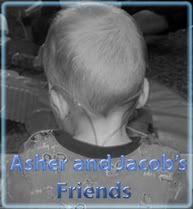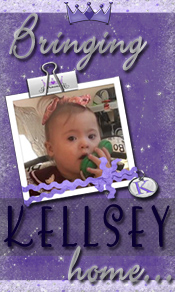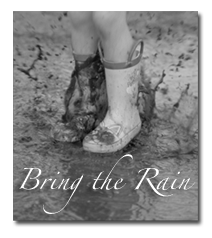It was 700 BC, and life had become a desert to God’s people. The world once known by the Israelite community was no more. Their lives had dried up; their emotions were spent, food had gone to waste, their city was demolished.
The people of God were now in captivity. Their capital city had been incinerated and their houses of worship were destroyed. It had been fifty years since their captivity had begun. Their young men had all been killed and the king had been blinded. All they had once called their own was now gone. Their city, their sons, their temples, their homes. Everything they loved was dried up, wasted away. Their hearts and minds had given way to a hopelessness.
These are the people whom we hear about in today’s Isaiah reading. They are God’s chosen people, living through a desert time; fifty years in the sands of captivity and sorrow. The life they had known was dried up and wasted away. All that was left of them was an empty shell of a broken heart.
The people spoken of in Isaiah’s writings are ones whom speak to the deserts we all walk through. The context in which Isaiah is writing is one that transcends culture and time. It speaks to those times we all experience when the streams of our lives have been overcome, leaving us dried up, broken down, and burned out. All that is left is the cracked clay and blowing sand.
The words of Isaiah in chapter 35 bring us to a new beginning, a promise to all of God’s people. It bridges for us a time when the prophet was sharing God’s message of judgment on the nations. It was a time of living through hard truths, heartache, and sorrow. This chapter takes us from the time of living in the dried up places and brings us into a message of promise. It is a message that takes us to the promise of a highway in the wilderness, of streams in the desert. This chapter opens to us the hope of the coming Messiah, who would deliver us from our sin and bring us to reconciliation, to grace.
Our lives can be very much like those of the Israelite people. We too live through desert times. Our lives can become dried out through the pain we encounter through sin, illness, or loss.
Our lives can become dried out through the pain of losing someone. As we quickly approach the holiday season, this truth becomes even more real. We remember our loved ones no longer with us; praying the holiday season will quickly pass and the pain of our desert will ease. We long for the streams in the desert.
The pain of desert times speaks with the endless reality of debt, loss of income, and empty cupboards. Like the Israelites who had lost their city, taking with it means of income, food, and shelter, we too live through times of economic uncertainty. While we hear all the time that money should not control our lives, inevitably the reality of living in the red makes it shadows more prominent as the bills come in. It is during those times that the sands of the desert sting our eyes, making it impossible to see past the pain.
Broken relationships, painful illness, depression, substance abuse…all of these situations have their real effect on the lives of God’s people. We all live through the dry times making our thirst more overpowering and leading us to long for relief.
Life can certainly be like a desert. Pain can lead us to paths that look much like the Saharan desert. Paths that are long, hot, and unending. Life leads us to places were God seems far away; to places where we feel alone, afraid, where love feels far off, were relief shows no sign of coming. We become the Israelites, living through times were our world feels like it has been burned away, leaving us with no place to call home; faced with only our sin and a message of judgment upon us.
The promise we hear for the Israelite people is the same promise that has been made real in our own lives. Where the deserts exist, stream will flow. Where there is only sand, flowers and plants will bloom. The eyes of the blind shall be opened, the ears of the deaf unstopped. The lame shall leap, the tongue of the speechless will sing for joy.
God makes a beautiful garden in the deserts of our lives. The message to the Israelites was made real in the Messiah, Jesus Christ. Christ came to the people whose lives had become like the desert. He healed his people such as the young child overcome by a demon. He made the lame to walk, the deaf to hear, the blind to see. Jesus came to bring blooming gardens to the desert hearts. Healing physical ailments, bringing a message of love to the prostitutes, providing a second chance to thieves and tax collectors.
Jesus came to redeem all, making a highway of grace in the hearts that had become sand. Just as Jesus’ coming brought streams to the broken hearts in his lifetime, so he continues to heal today. When Jesus is alive in our lives, when the spirit moves in us, there are streams brought to the desert.
In our baptisms, we were washed with the waters of healing, cleansing the desert of captivity to sin and offering us a message of hope and grace. We were brought into this new and lush garden of the body of Christ. Water cleansed us. The spirit of God, the living water, lives inside us. It opens a gateway to hope.
The call for us in this passage is a call to new possibilities. It is the call to take those parts of our lives that are living in the desert sands, and reimagining how the streams of living water can bring us healing and hope. One of the most difficult things the Israelites faced was moving beyond living in the grief of their captivity and into a place awakening new hope and possibility. They had to move beyond the place of asking why this happened and into a place of asking what they could do to make the desert bloom.
God is calling us to take the things that weigh us down, turning them into new possibilities to proclaim God’s grace. To take our deserts and bring streams of living water, to create new opportunities in places we once considered dry clay.
In our gospel lesson, we hear of a woman who wouldn’t take no for an answer. She knew Jesus could make her daughter well. She was persistant, she was patient, she knew Jesus could take this desert pain and bring living water. She knew Jesus could and would heal her.
This is our call; to be patient, to be persistent, to see how the places that are dried up in our own lives, in our own church, in our own family, and in our own community; how these places can be awakened and made alive through the living water given to us through a gracious and loving Messiah. For as is promised in Isaiah, when the Messiah comes, there will be streams in the desert. Amen.
Subscribe to:
Post Comments (Atom)












2 comments:
My favorite analogy ever used for the Savior is "living water" ... for the reasons you mentioned and for many more. Great sermon, especially since it is impossible to escape the deserts of life.
Laura- that was a great sermon. It is always good to think of baptism. We need to remember repentance can make us clean after baptism. The Lord will always forgive us. Thanks for sharing that message. By the way my blog is Elder Bruce & Sister Sylvia. I love you Sylvia
Post a Comment